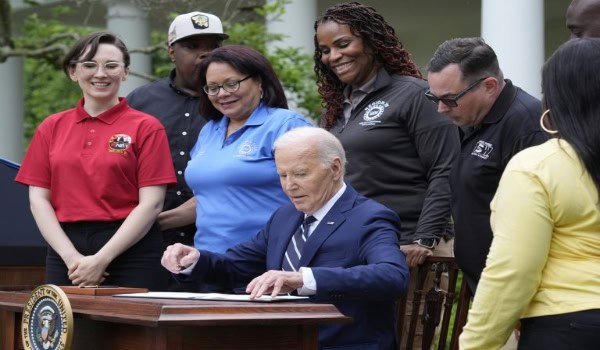The recent decision by the Biden administration to increase tariffs on some Chinese medical supplies is an example of how tariffs can be used strategically.
The reasons behind this specific decision are likely complex, but it could be an attempt to protect American jobs in the medical supply industry or to put pressure on China in trade negotiations.
It’s important to note that tariffs can also have negative consequences. They can lead to higher prices for consumers, reduce overall economic efficiency, and spark trade wars between countries.
The Biden Administration’s Decision

The Biden Administration has recently announced new tariffs targeting a range of Chinese imports. Specifically, the medical supplies affected by these new tariffs include:
- Syringes and needles: The tariff rate on these items will increase from zero to 50%1.
- Respirators and face masks: Certain types of these products will see an increase in tariffs to 25% this year, up from the current range of zero to 7.5%1.
These measures are part of a broader strategy to protect the U.S. against supply shortages experienced during the COVID pandemic. The administration is focusing on strategic sectors, including electric vehicles, solar panels, and steel, in addition to medical supplies. The aim is to bolster domestic production and reduce dependency on foreign imports for critical equipment.
Industry Impact
Tariffs on medical supplies can have a ripple effect throughout the industry, potentially affecting everything from production costs to patient care. Here’s a breakdown of the potential impacts:
Price Increases:
- Increased Costs: Tariffs act as a tax on imported goods, raising the cost for manufacturers and distributors. These costs are often passed on to hospitals and other healthcare providers, ultimately impacting patients through higher prices for medical supplies.
- High-Volume Supplies: For high-demand items like PPE (personal protective equipment) which are often imported, tariffs can have a significant impact. Since many hospitals and providers rely on competitive pricing for these essential supplies, price hikes can strain budgets and limit access.
Supply Chain Disruptions:
- Shifting Production: Tariffs can incentivize domestic production of medical supplies. However, this shift takes time and may lead to temporary shortages in the short term, especially for complex or specialized equipment.
- Global Reliance: The medical supply industry is highly globalized. Tariffs can disrupt established supply chains, leading to delays and uncertainties in obtaining essential equipment.
Industry Reactions:
- Manufacturers: Domestic manufacturers may see an increase in demand due to tariffs, potentially leading to job creation and investment in the sector. However, they may also face pressure to keep prices competitive.
- Distributors: Distributors may face challenges sourcing supplies at lower costs and may need to adjust their pricing models.
Healthcare Provider Reactions:
- Hospitals and Clinics: These institutions are likely to bear the brunt of the cost increases, straining already tight budgets. They may need to find ways to cut costs elsewhere or pass on some of the additional expense to patients.
- Doctors and Nurses: Healthcare providers may face shortages of essential supplies and may need to adjust treatment protocols or practice rationing in extreme cases.
Impact on Global Trade Relations:
- Increased Uncertainty: The threat of retaliatory tariffs and trade wars creates uncertainty for businesses, hindering investment and economic growth.
- Disrupted Supply Chains: Tariffs can disrupt established supply chains, leading to shortages and higher prices for consumers around the world.
- Reduced Cooperation: Trade disputes can strain international cooperation on other issues, impacting global security and environmental efforts.
The situation remains fluid, and the response from China and other trading partners will depend on the specifics of the new tariffs. However, the potential for retaliatory measures and a further escalation of trade tensions is a significant concern.













